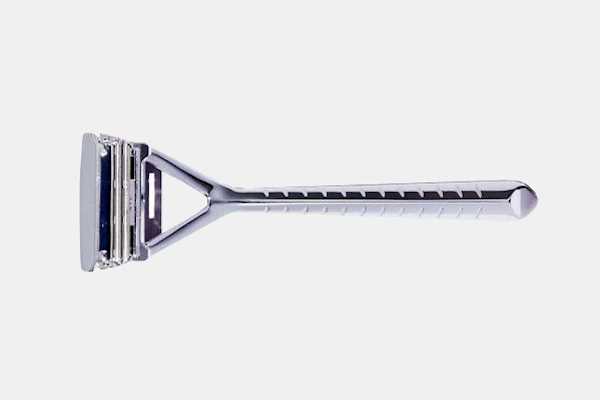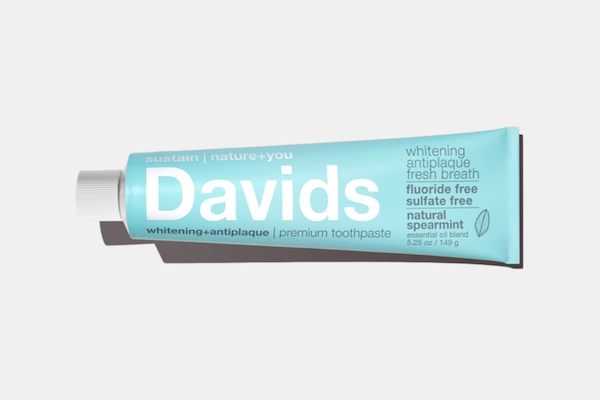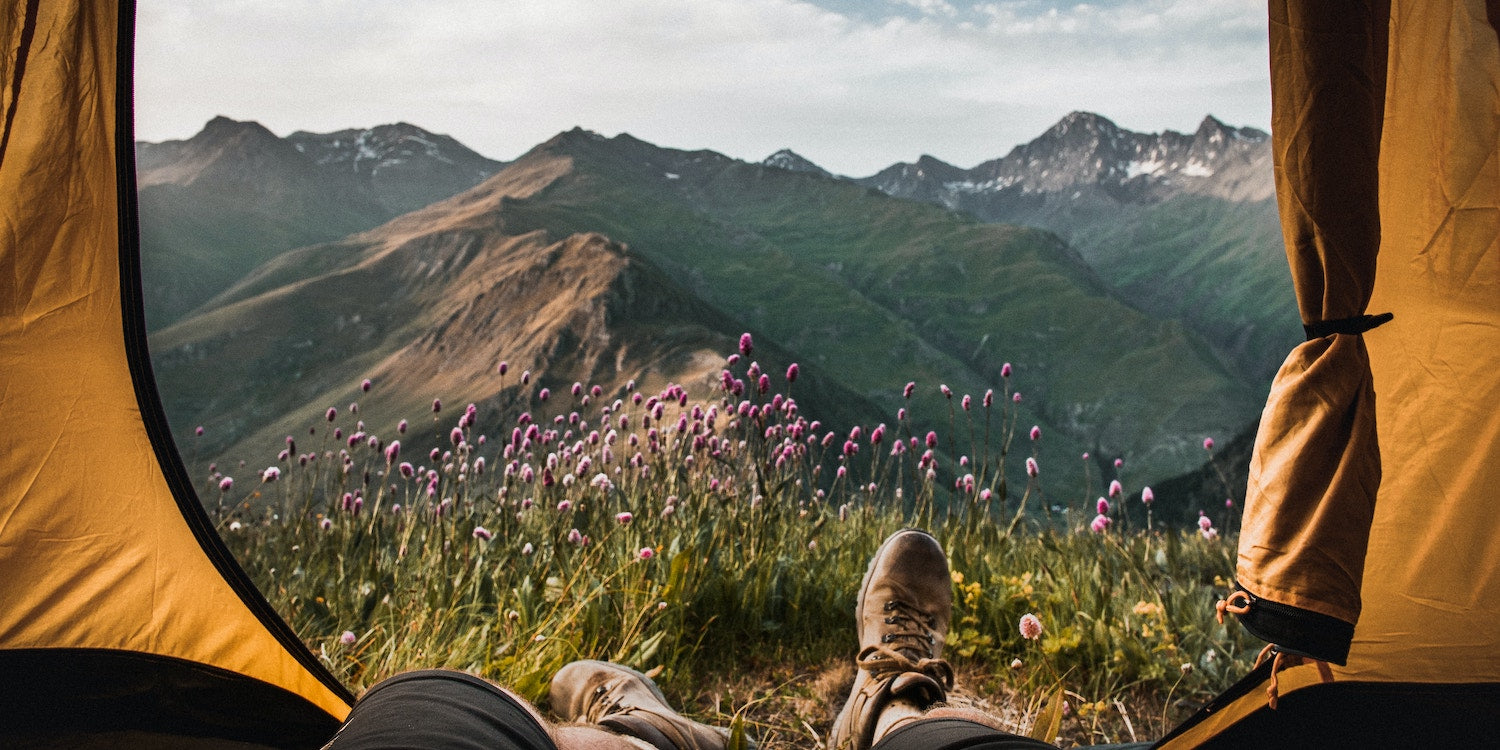You’re planning for your long-awaited wilderness getaway and you have the basics covered. Hiking boots? Check. Reusable water bottle? Check. Tasty snacks? Double check.
One thing you might not have on your packing list is earth-conscious personal care products like shampoo, soap, and sunscreen. But these small items can have a big impact on the planet.
By choosing sustainable soaps and shampoos while you’re out enjoying nature, you can help protect wildlife and native plants, promote healthier soil, keep pollution out of our waterways, and reduce litter that ends up in the environment.
In this guide, learn how to cut through confusion and greenwashing to choose the best eco-friendly personal care products for camping. That way, you can camp with convenience and peace of mind.
RISKS OF USING CONVENTIONAL PERSONAL CARE PRODUCTS WHILE CAMPING
First, let’s dig into some of the issues with using conventional personal care products while you’re camping.
One factor to consider is packaging. Typically, items like shampoo or toothpaste come in plastic bottles or tubes. And when you get mini or travel sizes, the ratio of packaging to product goes up.
Another problem is weight. Many traditional personal care products are water-based, which makes them heavy for you to pack and adds to transportation pollution when they’re shipped to you.
Finally, one of the biggest problems with using big-box brands while you’re camping is ingredients. A lot of conventional personal care products contain ingredients that can be harmful to the planet.
WHAT ARE COMMON INGREDIENTS IN PERSONAL CARE PRODUCTS THAT MAY HARM THE ENVIRONMENT?
Here are a few common potentially harmful ingredients to look out for when you’re shopping for personal care products to use outdoors.
- Silicones: Silicones like dimethicone are often found in conditioners. It’s not considered biodegradable and can stay in waterways or soil for a long time. If it builds up in larger amounts, it can harm aquatic life.
- Parabens: Parabens are a type of preservative that helps prevent mold and bacteria growth in personal care products. These may disrupt the human endocrine system. And as they enter waterways, they can also negatively impact the systems of fish and other marine animals.
- Phthalates: Phthalates are often used in fragrances. Like parabens, they may disrupt the endocrine system and can make aquatic animals sick.
- Phosphates: Phosphates are common in personal care products, but they can cause water pollution when they run off into streams, lakes, or rivers. Too much phosphorus can cause an overgrowth of algae and reduce oxygen in the water.
- Polymers: Polymers may be used to thicken products or add texture to hair after washing. Polyethylene glycol and polyquaternium are two of the most common in shampoos and conditioners. Not all polymers are biodegradable and some can persist in the environment long after you pack up and leave.
- Quats (quaternary ammonium compounds): Quats like benzalkonium chloride or cetrimonium chloride are often used to add conditioning properties to personal care products. These ingredients may contribute to antibiotic-resistant bacteria and can be toxic to animals and fish.
- Sulfates: Sulfates like sodium lauryl sulfate or sodium laureth sulfate are extremely common in personal care products. They’re used to create lather and foam, but they are a potential toxin to plants and animals. Over time, they may build up and harm the local ecosystem.
- Synthetic Fragrances: Since fragrance is a vague blanket term, many synthetic fragrances actually contain harsh ingredients or chemicals. These can harm aquatic life, soil health, and native plants.
- Triclosan: This antimicrobial agent is common in products like soap, deodorant, or toothpaste. It can be a toxin to wildlife and may contribute to the development of bacteria that resists antibiotics.
Avoiding ingredients like the ones above is important when choosing what personal care products you’ll take camping. Now, let’s take a look at other factors to look when choosing environmentally-safe camping supplies.
HOW TO SPOT PERSONA CARE PRODUCTS THAT ARE SAFE TO USE WHILE CAMPING

If thinking about finding the best camping-safe personal care products starts giving you eco-anxiety, we’re here for you. With confusing labels and greenwashing, it can feel overwhelming to figure out what’s actually good for the planet.
But we’ve got your back. Here are five things you can look at to help you find products you can feel great about tossing in your backpack when you’re headed on your next adventure.
And if you want a safe choice without the extra homework, be sure to check out our recommendations at the end of this article.
CLEAR LABELING OR CERTIFICATIONS
Not all label terms are regulated. For example, words like green, natural, and eco-friendly sound nice, but they don’t have specific requirements to back them up.
Other terms, like non-toxic or biodegradable, are more closely regulated. You can also look for trusted certifications such as:
- MADESAFE
- USDA Organic
- Rainforest Alliance
- Ecocert COSMOS
- NSF International
It’s also helpful to take a look at the label to look for overall transparency or clarity. Does the product seem like it’s trying to appear more eco-friendly than it is, or is there evidence to back up the claim?
PLANET-SAFE INGREDIENTS
Avoiding the ingredients we listed earlier is one important step. From there, you can look for ingredients that are biodegradable, non-toxic, and gentle on the environment.
Choose products that focus on plant-based, natural ingredients and avoid unnecessary chemicals or additives.
MULTI-PURPOSE
If you can find a product that can do more than one purpose, you have less to pack and carry. Multi-purpose products also eliminate even more packaging from the waste cycle! For example, you might find a bar that can double as hand and body soap.
COMPAST AND CONCENTRATED
Compact products take up less space in your pack and create less transportation pollution. One example of this is using a waterless solid shampoo instead of heavy, bulky liquid shampoo.
Similarly, concentrated products give you the same power in a smaller amount. With concentrated formulas, you can use less product and minimize your impact on the environment.
FRAGRANCE-FREE OR NATURALY SCENTED
Like we mentioned, the term “fragrance” can be a blanket for a whole host of chemicals or other iffy ingredients. So the simplest way to avoid those is to look for products that are fragrance-free or scented only using natural ingredients like essential oils.
One note here is that “unscented” and “fragrance-free” don’t necessarily mean the same thing. “Unscented” products may still have fragrance added to cover the scent of other components. Be sure to double check the ingredients!
LOW-WASTE PACKAGING
Look for products that come in minimal, conscious packaging. When you can, avoid plastic — especially single-use plastic or thin wrappers that are hard to recycle. Instead, opt for products that come in reusable or recyclable packaging like paper or aluminum.
EAST TO USE
Sustainable swaps can only have an impact if you are actually using them. So while you’re choosing what to take, consider how easily it will fit into your routine. Luckily, a lot of eco-friendly alternatives are just as convenient as their conventional counterparts, if not more so.
TIPS FOR SAFELY USING PRODUCTS LIKE SHAMPOO OR SOAP WHILE OUTSIDE
Even when you choose environmentally friendly personal care products while you’re camping, there are still precautions you should take to make sure you’re treading lightly on nature.
Here are three of the most important things you can do safely use personal care products outdoors:
- Store products properly so animals can’t get them and they can’t leak or spill
- Pack up any packaging or empty containers to dispose of them responsibly
- Use products away from water — avoid using soap or shampoo directly in streams or lakes and, when possible, stay at least 200 feet away from water sources
With these tips, you can leave your campsite looking as good as when you arrived.
OUR FAVORITE CAMPING-SAFE PERSONAL CARE PRODUCTS
To help you find truly sustainable alternatives you can take camping without any stress or hassle, we’ve compiled a list of some of our personal favorites to take on the go.
And, of course, you can use these at home as part of your zero-waste personal care routine, too!
HIBAR SOLID SHAMPOO AND CONDITIONERS
HiBAR’s salon-quality shampoo and conditioner bars are ideal for camping. They’re plastic-free and made with only premium biodegradable ingredients.
Unlike traditional shampoo and conditioner, they come in solid form. This means they’re compact, mess-free, and concentrated — perfect for slipping into your backpack for outdoor hair care.
You can find HiBAR in five varieties, each targeted for different hair types and needs:
- Moisturize, for dry or coarse hair
- Maintain, for oily hair or less-frequent washes
- Soothe, for sensitive, itchy, or flaky scalps
- Curl, for curly, wavy, or kinky hair
- Volumize, for thin or fine hair
HIBAR AMINO ACID FACE WASH BARS
Another ultra-convenient swap from HiBAR is their Vegan Amino Acid Face Wash Bars. Like the shampoo bars, they’re concentrated and compact. And since they’re solid, you don’t have to worry about messy leaks or spills.
As an added bonus, the bar’s unique shape functions like a gua sha stone to massage your skin while you use it.
Choose from these three face wash bars depending on your skin type:
- Cleanse, for oily or acne-prone skin
- Hydrate, for dry or sensitive skin
- Renew, for gentle exfoliation
MOUNTAIN TIME SOAP OR MELIORA SOAP
Both of these soaps are made with gentle, environmentally friendly ingredients that are safe for the planet and your skin. Mountain Time Soap’s down-to-earth bars have no artificial ingredients or fragrance and no lathering agents. Their Hand Soap and Bar Soap come in rugged, nature-inspired scents you’ll love.
Meliora goes above and beyond in making sure their ingredients have no negative impact on the planet. They are MADESAFE certified and free from dye, preservatives, synthetic fragrances, and any other harmful ingredients. You can find their Bath and Body Soap Bar in four natural scents or fragrance-free.
UNPASTE TOOTH TABLETS
UNPASTE Tooth Tablets take the mess and waste out of your tooth brushing routine. Each tablet is perfectly measured for one brush. So it’s a breeze to count out how many you’ll need for your camping trip and store them in a reusable bag or jar. Since they’re made with effective natural ingredients, they’re safer to use out in the wild.
RAW ELEMENTS SUNSCREEN
Protecting your skin from sun damage is critical when you’re spending extra time outside. Most sunscreens contain ingredients that can be harmful to your body and the environment.
Raw Elements Sunscreen is different — it’s made with nourishing butters and oils to care for your skin and uses reef-safe zinc oxide to block UV rays. For extra-sensitive skin, try their Baby and Kids Sunscreen.
If you have any go-to personal care products to take camping, let us know in the comments.
YOU CAN HELP CARE FOR THE PLANET WHEN YOU'RE OUTDOORS
We hope this guide helps you take the confusion out of finding the best eco-friendly personal care products for camping. And we applaud you for taking the time to consider this important choice in the first place!
Choosing sustainable personal care products when you’re spending time outdoors is a simple way to help care for the planet. From promoting better soil health to protecting wildlife, you’re having a positive effect on the planet.
To browse more planet-friendly personal care products, check out our bath and body collection.
RESOURCES:
US Geological Survey - Phosphorus and Water
Science Direct - Biodegradable Polymer






